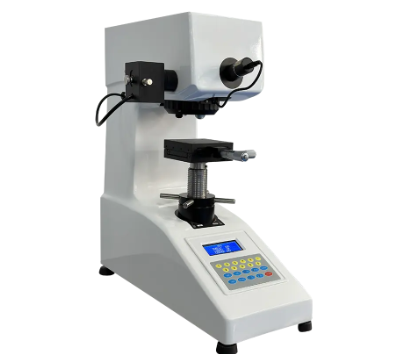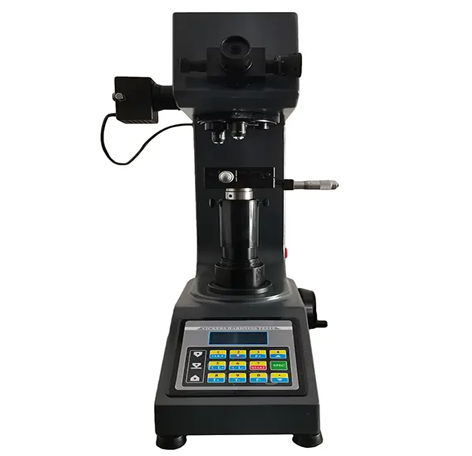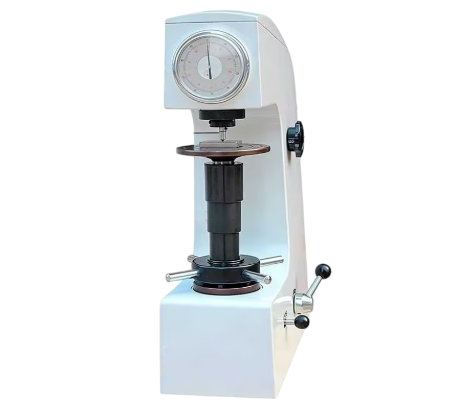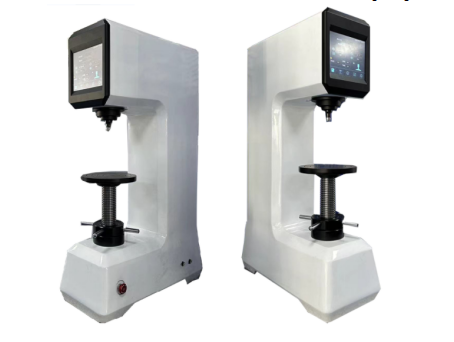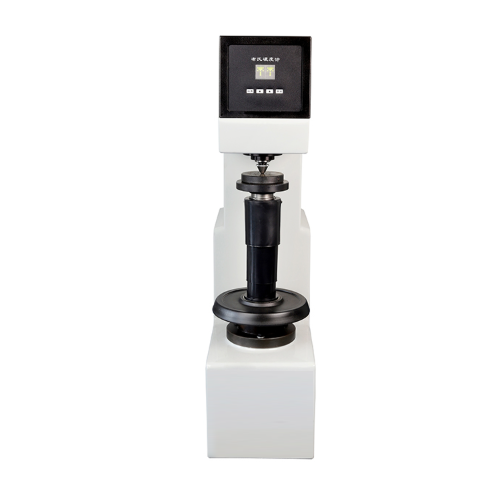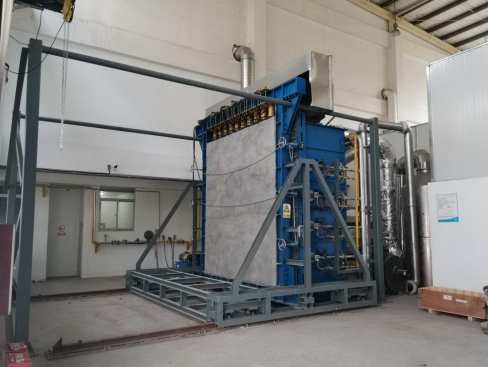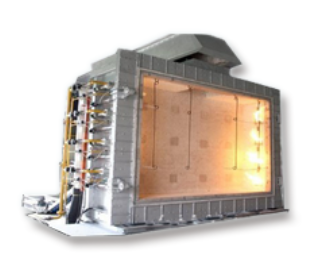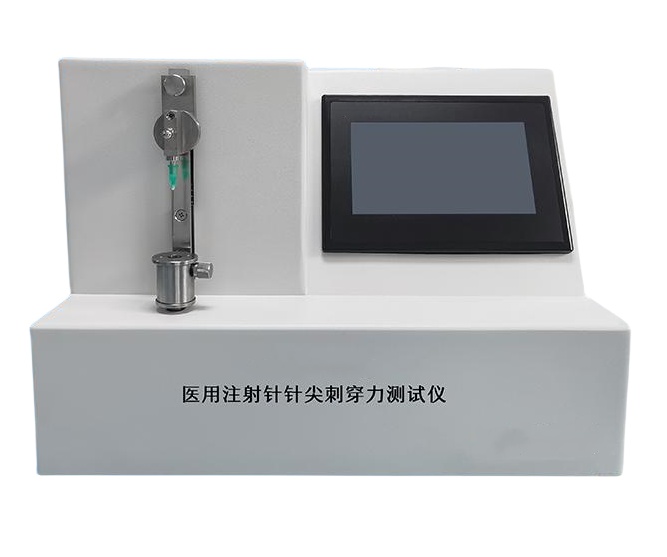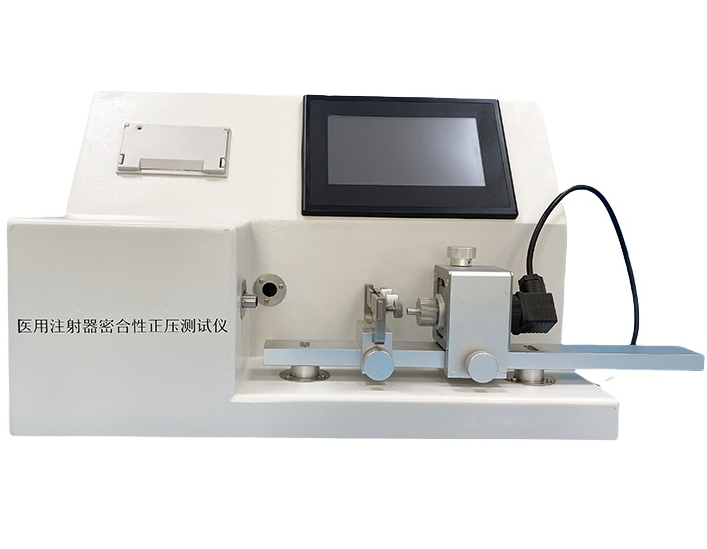Simple Porometer
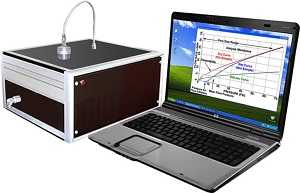
Principle
A wetting liquid is allowed to spontaneously fill the pores in the sample and a nonreacting gas is allowed to displace liquid from the pores. The gas pressure and flow rates through wet and dry samples are accurately measured. The gas pressure required to remove liquid from the pores and cause gas to flow is given by
D = 4 γ cos θ / p
where D is the pore diameter, γ is the surface tension of liquid, θ is the contact angle of liquid, and p is the differential gas pressure. From measured gas pressure and flow rates, the pore throat diameters, pore size distribution, and gas permeability are calculated.
Application
The unique features of the instrument, especially its ability to generate highly reproducible data quickly, make it highly suitable for quality control and process control operations. The instrument is used in these applications in a wide variety of industries.
Capabilities
● Diameter of the most constricted part of a through pore (pore throat)
● Mean flow pore diameter (50% of flow is through pores smaller than the mean flow pore)
● Bubble Point (the largest through pore throat diameter)
● Pore diameter range
● Pore distribution:
· f = -d[(fw/fd) x 100] / dD
· fw = flow rate through wet sample
· fd = flow rate through dry sample
● Gas permeability in many desired units including Frazier, Gurley, Rayl & Darcy
Features
◆ Fully Automated and User-Friendly
◆ Only a few minutes per test
◆ Preset test parameters
◆ Very little operator time and involvement
◆ Ideal for quick generation of highly reproducible data
◆ Variety of sample shapes and sizes
◆ Very little maintenance
◆ Real-time graphical display
◆ Windows-based software for all control, measurement, data collection, data reduction, and report preparation
Technical Parameters
A wetting liquid is allowed to spontaneously fill the pores in the sample and a nonreacting gas is allowed to displace liquid from the pores. The gas pressure and flow rates through wet and dry samples are accurately measured. The gas pressure required to remove liquid from the pores and cause gas to flow is given by
D = 4 γ cos θ / p
where D is the pore diameter, γ is the surface tension of liquid, θ is the contact angle of liquid, and p is the differential gas pressure. From measured gas pressure and flow rates, the pore throat diameters, pore size distribution, and gas permeability are calculated.
Application
The unique features of the instrument, especially its ability to generate highly reproducible data quickly, make it highly suitable for quality control and process control operations. The instrument is used in these applications in a wide variety of industries.
Capabilities
● Diameter of the most constricted part of a through pore (pore throat)
● Mean flow pore diameter (50% of flow is through pores smaller than the mean flow pore)
● Bubble Point (the largest through pore throat diameter)
● Pore diameter range
● Pore distribution:
· f = -d[(fw/fd) x 100] / dD
· fw = flow rate through wet sample
· fd = flow rate through dry sample
● Gas permeability in many desired units including Frazier, Gurley, Rayl & Darcy
Features
◆ Fully Automated and User-Friendly
◆ Only a few minutes per test
◆ Preset test parameters
◆ Very little operator time and involvement
◆ Ideal for quick generation of highly reproducible data
◆ Variety of sample shapes and sizes
◆ Very little maintenance
◆ Real-time graphical display
◆ Windows-based software for all control, measurement, data collection, data reduction, and report preparation
Technical Parameters
| Items | Parameters |
| Pressure Accuracy | 0.15% of reading |
| Test Pressure | 100 psi instrument version (700kPa instrument versions) |
| Pressure & Flow Resolution | 1/60,000 of full scale (1 part in 60,000) |
| Maximum Pore Size Detectable | 80 µm |
| Minimum Pore Size Detectable | Varies with intrusion liquid |
| Flow Rates | Up to 200 SLPM (liters per minute) |
| Sample Sizes: | Standard: 0.1 inch diameter (up to 1.5" thick) |
| Sample Geometry | Sheets, Rods, Tubes, Hollow Fibers, Cartridges, Powders |
| Pore Size Range | 80 µm to 0.06 µm |
Note:QINSUN is very in place for textile testing and quality control,we have our own textile testing lab. Our textile testing equipment and testing methods are in the leading position in the industry. We have passed the textile testing certification and iso textile testing standards issued by a number of testing,We can provide textile testing equipment pdf manual. Sufficient inventory, big discounts, limited time promotion, Order now!
Leave Message Get Price



